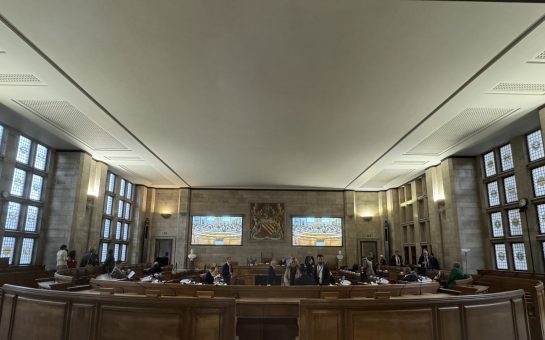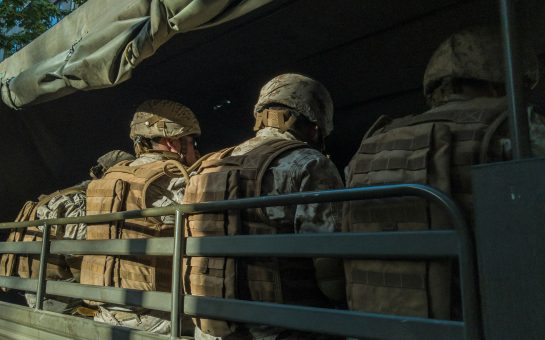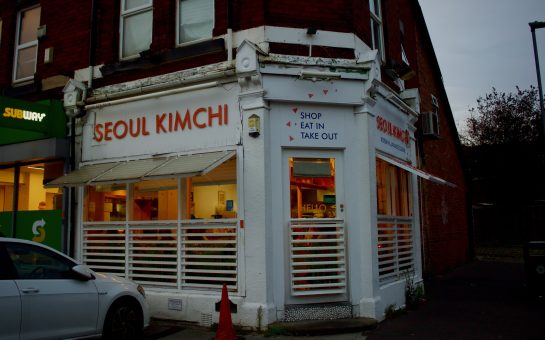A Manchester war veteran who spent four months living in a trench and came agonisingly close to losing his life while fighting in Korea will have the chance to share his story thanks to a new lottery-funded project.
Brian Hough, from Ardwick, was a National Serviceman who fought with the King’s Regiment after being called up at the age of 18.
However, the 81-year-old revealed he ‘volunteered’ to go to war after the government introduced a rule which meant soldiers had to be 19 years of age and have six months training under their belt.
“They were going to leave some of us behind in Hong Kong,” he told MM.
“But being young and foolish, we kicked up a fuss and said we wanted to go. My mother would have killed me had she known that I’d volunteered.”
The war veteran will have his memories captured on film as part of Legasee Educational Trust’s project, Korea – the Forgotten War.
This was made possible thanks to a £60,600 donation by the Heritage Lottery Fund (HLF) and will cast a local perspective on the 65th anniversary of the war, with national commemorations set to honour the 63,000 British troops who joined the Allied forces in Korea between June 1950 and July 1953.
The Korean War has a particularly strong legacy in the North West with the region having the largest number of surviving veterans, with 200 members in The Greater Manchester British Korean Veterans Association (BKVA).
The veteran spent 13 months of national service in Korea, where the United Nations including the USA and UK fought with China and the Soviet Union for the southern area of the country.
He explained how infantory regiments dictated him to only serve one winter due to temperatures of minus 40 degrees and the poor living conditions he had to contend with in his time there.
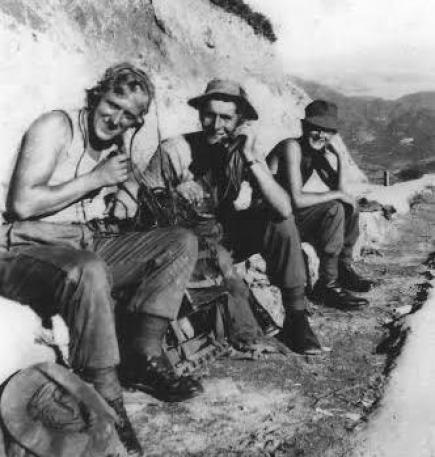
SMILING THROUGH: Brian Hough and pals pose for a photograph in the trenches
“We spent four full months without a break living in the trenches between September 1952 and January 1953,” he said.
“Holes were dug into the side of hills and you lived in them when you weren’t in the trench.
“When it rained, everything was flooded and during winter we were frozen like peas in the freezer.
“It was also overrun with rats. The conditions were like France in World War I, I’m not exaggerating.”
Towards the end of the war, the infamous Battle of the Hook took place near Kaesong in North Korea.
It was the bloodiest conflict of the war with approximately 1050 Chinese deaths and Brian explained that it was the closest he came to losing his life.
“We’d been shelled for over a week by the Chinese and on the final day it was horrendous – you cannot imagine the noise and the shell fire,” he said.
“It’s claimed that in the week leading up to the assault 500 shells a day were falling on the King and Duke of Wellington’s positions and on the last afternoon before they attacked in the evening, there were 1000 shells per hour.
“We were pretty close to death quite a lot of the time.”
Despite the bombardment from opposition forces, the veteran revealed that he never truly believed he would be killed.
“Being a bit young and gung-ho, we thought we were invincible,” he said.
“We didn’t think we were going to get hit.
“We were scared but didn’t show it. You may as well have packed up if you thought you were going to get killed.”
He holds notable memories of the ceasefire that occurred on July 27 1953 that signalled the end of the war and explained it was a massive relief.
“We were in the front-line when the ceasefire was called – that was a long, long day,” he said.
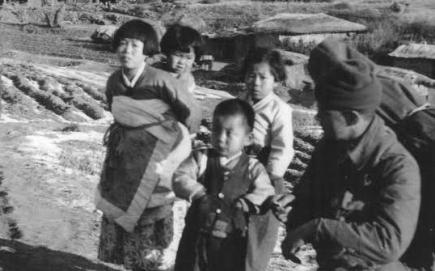
LOCAL STRUGGLE: Korean families were left devastated by the war
“We knew that peace talks had been going on for months and months but we got news on the early morning and at 10pm in the evening.
“We stood up in the trenches and we were 300 yards from the Chinese positions and we were waving to each other.
“The following day some of our troops went out into no mans land and shook hands with some of the Chinese.”
Brian felt that the film project would help engage youngsters in modern history.
The Korean war is often overlooked, even though Great Britain had more men killed in the three-year battle than in the Iraq, Afghanistan and Falklands wars put together.
“This project will be a wonderful testimony not only for today’s students of modern history, but also for future students, to see and hear first-hand accounts of the first war in the history of the world to be fought under the banner of the United Nations,” he said.
“I was reluctant to go on camera 2-3 years ago but it’s living history and it was the first war to be fought under the banner of the UN where 22 countries came to the aid of one small country for the sake of democracy.”
The Legasee Trust are also calling for more veterans from Manchester and beyond to come forward with their stories.
To get in touch, click here.
